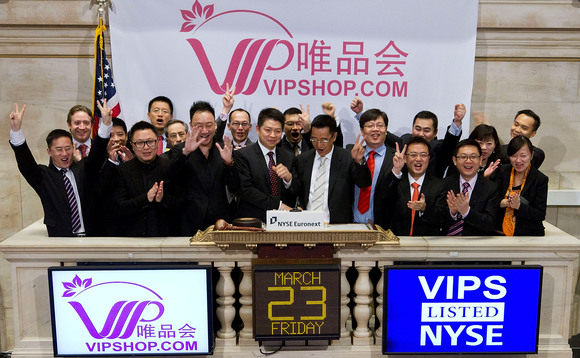
China tech M&A: Money to burn

Chinese technology firms are becoming increasingly acquisitive, with certain players snapping up assets within months of going public. What is driving this change?
Going public isn't enough for the modern day Chinese technology firm - there is also a growing appetite for strategic M&A to sate.
Two giants of the domestic scene, Tencent Holdings and Baidu, went public in 2004 and 2005, respectively. Tencent made one small acquisition the same year, while Baidu waited until 2008 to get in on the action. Since 2011, Tencent has pumped more than $762 million into 10 disclosed deals and Baidu has deployed $363 million across five.
Perhaps inspired by their larger counterparts, a number of recently listed tech firms - young enough that their VC backers are mostly still on board - are embracing M&A opportunities. Online retailer LightInTheBox and mobile app developer Sungy Mobile both made acquisitions within several months of going public in the US last year. So did flash sales site Vipshop Holdings, which completed its IPO in 2012.
On a broad level, Chinese tech firms, principally those in the internet sphere, are engaging in M&A as part of their battle for market supremacy. This is most visible among Baidu, Alibaba Group and Tencent, but the trend extends deep into the industry.
Smart phone manufacturer Xiaomi and US-listed antivirus software provider Qihoo 360 are currently in the second tier but upwardly mobile, and making acquisitions to this end. Mobile payment, software, e-commerce, mobile gaming and various consumer-related businesses running online-to-offline (O2O) models are all in play.
Continue down the food chain and the same applies to the likes of LightInTheBox, Sungy Mobile and Vipshop. These companies don't yet occupy multiple markets but they must respond to a commercial environment far more competitive than it was 10 years ago by supplementing their technologies, market positions and knowhow.
"All of a sudden technology firms are accelerating their acquisition pace and spending increasing amounts of money, which didn't really happen before 2011," says Zhou Wei, managing partner Kleiner Perkins Caufield & Byers China (KPCB). "But if you look at the US tech players, M&A is a key component in engineering businesses to move further."
From nothing to something
Twenty VC-backed Chinese firms went public in the US and Hong Kong between 2003 and 2005. None of these firms engaged in M&A in 2003; there was one deal in 2004; and then 11 in 2005.
The reasons for this relative inactivity are simple. First, there were fewer acquisition targets because the tech, media and telecom (TMT) space was in its nascent stages. Second, internet players still lacked cash. Most income was sourced from online advertising and gaming, while e-commerce platforms were providing very low margin returns.
In this context, entrepreners remained focused on their core business, says KPCB's Zhou.
The landmark deal - in terms of size and marking out a future trend - was arguably Baidu's $306 million purchase of a majority stake in VC-backed travel booking site Qunar in 2011. Since then the major tech firms have become profitable and sought to dramatically expand their footprints in new market segments.
The newly-listed companies have been able to participate because most of them were turning a profit - albeit a slender profit - before listing. While online video site Youku, which has since merged with rival Tudou, and e-commerce site Dangdang only recently announced they had entered the black, about four years after their IPOs, LightInTheBox reported a profit last March and went public in June. Sungy Mobile was profitable one year ahead of its listing.
They are therefore in a position to introduce new technologies and expertise through direct acquisitions, rather than spending years building up capabilities in house.
"Today is a much more competitive environment for everyone in different ways - internet, mobile internet, and e-commerce. Everyone is fighting for the same and similar things," says Ron Cao, co-founder and managing director of Lightspeed China Partners. "And there is definitely a need for talents and strong teams, of course along with the products and services. That's a winning formula. I don't think 4-5 years ago, this was the mindset of a public company CEO."
LightInTheBox, for example, sources goods from Chinese manufacturers and sells them primarily to overseas customers - yet it didn't have a physical presence in any of the foreign markets it served. The acquisition of Seattle-based social e-commerce site Ador has helped fill this knowledge gap, with the addition of Ador co-CEOs Mark Stabingas and Quinten Shay, both of whom previously worked for Amazon.
Sungy Mobile bought paid $50 million earlier this year for US-based mobile ad network GetJar. Having started out operating 3G web portals in 2004, Sungy raise three rounds of funding from IDG Capital Partners, WI Harper Group, JAFCO Asia and CBC Capital and gradually transformed itself to be a modern-style app developer.
"We shifted our focus to the development of mobile applications and mobile platform in the second half of 2010. However, we are a newcomer in this field and there is a lot of talent in the market," Winston Li, CFO of Sungy Mobile, tells AVCJ. "Meanwhile, the majority of our mobile app revenues come from Western markets - so it makes sense for us to acquire the US operation of the Getjar group."
Finally, Vipshop, which is backed by DCM and Sequoia Capital, bought domestic cosmetics and fashion products site Lefeng.com for $132.5 million. The deal is expected to diversify the company's product offering. While Vipshop is strong on flash sales for apparel, it has less experience in cosmetics, and struggles to compete against cosmetics specialist Jumei.com.
Sequoia is an investor in Vipshop, Lefeng and Jumei. "This deal is great for Sequoia. It now owns the top two players in the category, with a board seat on each. This may have led to the transaction, but ultimately it doesn't matter to Sequoia if Lefeng is acquired by Vipshop or Jumei," a China-focused fund manger says.
VC firms can also play matchmaker between their portfolio companies and the likes of Baidu, Alibaba and Tencent. The idea is that these large players have the networks, talent and capital to help their smaller counterparts scale up. In a recent deal, Tencent paid a reported $500 million for a 20% stake in Dianping, a VC-backed online listings provider best known as one of China's most popular sites for restaurant reviews.
Dianping has a strong O2O business - dealing with restaurants' owners to provide group-buying services to online users. It might be able to leverage Tencent's larger user base by combining with social-networking mobile applications QQ and WeChat.
O2O is only area of competition among the internet giants. They are also battling for position in navigation and map applications, e-commerce platforms, and searching engines - in some cases straying far from their core businesses.
Sources tell AVCJ that Alibaba is currently considering an investment in Qihoo360 to expand its web browser service, while Tencent is in discussions with Vipshop and JD.com, China second-largest B2C e-commerce site, with a view to challenging market leader Alibaba.
VC investors are generally positive about these acquisitive corporates, in part because they offer an alternative exit channel to an IPO. For now, activity has largely remained within China as companies encroach upon each other's territories. Hans Tung, managing partner at GGV Capital, expects the next stage in the evolution process to involve Chinese tech firms expanding overseas.
"Internet giants are trying to change the landscape," he says. "They aren't just staying in their own core business areas but trying to build kingdoms compromising different businesses. If they don't do this, they will be phased out from the market in next 10 years."
Sina, NetEase, and Shanda Interactive Entertainment serve as lessons for today's tech firms. They all listed in the US and were once regarded as market leaders, but have since faded. The problem? Losing the competitive edge after staying too focused on core businesses and not engaging in expansion-focused M&A.
Latest News
Asian GPs slow implementation of ESG policies - survey
Asia-based private equity firms are assigning more dedicated resources to environment, social, and governance (ESG) programmes, but policy changes have slowed in the past 12 months, in part due to concerns raised internally and by LPs, according to a...
Singapore fintech start-up LXA gets $10m seed round
New Enterprise Associates (NEA) has led a USD 10m seed round for Singapore’s LXA, a financial technology start-up launched by a former Asia senior executive at The Blackstone Group.
India's InCred announces $60m round, claims unicorn status
Indian non-bank lender InCred Financial Services said it has received INR 5bn (USD 60m) at a valuation of at least USD 1bn from unnamed investors including “a global private equity fund.”
Insight leads $50m round for Australia's Roller
Insight Partners has led a USD 50m round for Australia’s Roller, a venue management software provider specializing in family fun parks.








